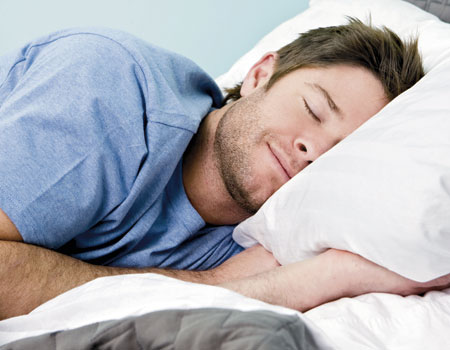10 Factors affecting sleep and how to overcome them

Getting quality sleep is one of the most important things you can do for your health. A lack of sleep can disrupt your hormones, weaken your immune system, affect your mood and also impair your mental and physical performance.
The quality of your sleep affects the quality of your life, but what affects the quality of your sleep? Sleep experts from People Who Sleep have put together a list of ten factors that can affect the quality of your sleep.
1. Room and body temperature
The temperature of your room is critical when it comes to sleep quality. If your room is too warm, it will be harder for you to fall asleep. The ideal room temperature for sleep is around 18°C.
To help you cool down before bed, you can take a cold shower, use a cooling pad on your mattress, switch on a ceiling fan (or air conditioner), and invest in sleepwear and bedding made with light, breathable fabric.
2. Caffeine consumption
Caffeine is great for when you want to wake up in the mornings, but not when you want to go to sleep. Any caffeine consumed later in the day from sources like coffee, energy drinks and chocolate can raise adrenaline and cortisol levels and disrupt your sleep at night. It is best to avoid caffeine six hours before going to bed.
3. How much exercise you get
If you want to sleep well at night, you need to move enough during the day. Exercising regularly will help you get a better night’s sleep. It helps to regulate your circadian rhythm, which is also known as your sleep-wake cycle.
Exercise can make it easier for you to go to sleep and wake up at the right times. Aim for at least three or four sessions per week.
4. Blue light exposure
That blue light your phone or TV emits when you stare at it before bed can affect the quality of your sleep. Blue light interferes with melatonin production, which your body needs to prepare for sleep.
Avoid blue light exposure before bed and try to make your room as dark as possible at night by getting dark curtains and getting rid of any device that emits light.
5. Your pre-bed habits
What you do before bed is crucial for a good night’s sleep. Watching TV or videos on your phone until just before you want to go to sleep, eating a big meal just before bed and drinking coffee or alcohol are all examples of poor pre-bed habits.
Instead, you want to develop some good habits before bed like:
- Avoiding digital screens 30 to 60 minutes before bed
- Avoiding large meals before bed
- Doing relaxing activities before bed like reading, doing breathing exercises and listening to soothing music
- Choosing a soothing cup of herbal tea instead of coffee or alcohol before bed
6. Your bedtime
Going to bed at a different time every night is not optimal. It confuses the body and your body will not know when the best time is to prepare for sleep. Try to go to bed and wake up at similar times in the day to regulate your circadian rhythm and keep your body clock in sync.
A regular bedtime is also crucial for helping children sleep better.
7. Sleep disorders
There are various sleep disorders that all affect the quality of your sleep. These include sleep apnea, narcolepsy, REM sleep behaviour disorder, insomnia and restless leg syndrome. Each disorder requires a different treatment approach. It is best to seek professional advice if you suspect that you have a sleep disorder.
8. Stress and overthinking
Stress can make you toss and turn at night and wake you up too early. That is because when you are stressed, and your cortisol levels skyrocket, your liver starts to produce glucose, which increases your blood sugar levels. If this happens before bed, it means your blood sugar levels will be elevated while you are asleep.
After a while, your blood sugar levels will drop again, which can cause another rise in cortisol as a result and wake you up. This is why it is essential to incorporate various stress-management techniques like meditating, deep breathing, yoga, journaling, exercising and talking to loved ones.
9. Your hormones
Not only can a lack of sleep increase your cortisol levels, but high cortisol levels at night can make it harder for you to fall asleep.
Adrenaline is another hormone that can keep you up at night. You don’t need to partake in risky behaviour to get an adrenaline rush. Eating sugar, drinking coffee, working and watching scary movies before bed can all get your adrenaline going.
10. Alcohol
Drinking alcohol can lower the quality of your sleep. Alcohol can impede your melatonin production in your brain. It also makes your air passages narrow, so you breathe in less oxygen. For people who already have sleep apnea, this can be especially problematic.
From your bedtime to your caffeine consumption and even the temperature of your room, many factors can affect sleep quality. Addressing all of them at once can be overwhelming. Instead focus on one factor at a time, which will also make it easier to see which one has the biggest impact on your sleep.
If you want to improve the quality of your life, start with getting good sleep. If you want to learn even more about optimising your sleep, visit People Who Sleep.




